Why Is CBD Third-Party Testing So Important?
In the past few years, alternative ways to boost one’s health and wellness have started to gain attention—especially by women who historically have been misdiagnosed by doctors and dismissed by the medical system. Natural remedies have also grown in popularity as we become more cognizant of what we put into our bodies and the unwanted side effects that can come with some over-the-counter medications/prescription drugs. Enter the rise of CBD, the non-intoxicating compound in hemp that has been used to treat a variety of wellness concerns.
You may have noticed that CBD products are popping up everywhere and it’s great to have lots of options! But it also means that consumers need to be careful that the products they’re buying are tested for purity, contaminants, and heavy metals.
Since CBD products aren’t federally regulated, reputable CBD and hemp companies use unbiased, third-party lab testing to prove that their products contain what the label says.
How does third-party testing work?
At Winged CBD, we use an independent third-party lab to test each batch of our products multiple times. In doing so, we ensure the quality, potency, and purity of the ingredients. The lab runs a panel of tests to discern what is in our products, but just as importantly, what isn’t in our products—heavy metals, pesticides, or any harmful microbes. Once the testing is complete, we receive a Certificate of Analysis, which can be accessed by the QR code on the label of all our products.
Is third-party testing required for CBD products?
Third-party testing isn’t mandatory, which is why unlabeled CBD products have become common and are usually available at cheaper prices. If a company isn’t willing to test their products and be transparent about ingredients, please think twice before buying. Some CBD products on the market today have been found to include everything from illegal doses of THC to prohibited synthetic or toxic ingredients.
Reading the Certificate of Analysis
There are certain things you want to look for in the analysis report of a CBD product, which include:CBD vs THC: It might sound silly, but make sure the CBD product you’re buying actually contains CBD and that it is the same amount claimed on the label. It’s also good to verify that the THC content is 0.3% or less—the legal limit to be considered a hemp plant.
Microbes: Think E. Coli and Salmonella—it’s not something you want in your CBD product... or anything for that matter. Testing for microbes will confirm that harmful mold or bacteria wasn’t present on the hemp plant before harvesting.
Pesticides: Organic products will be able to prove this claim on the lab analysis. While pesticides may appear in trace amounts in all plants, the amount present in each sample should be minimal. If it’s not, that should raise a red flag.
Chemical solvents: Chemical solvents are often found in CBD oils extracted through methods that include alcohol, formaldehyde, or butane. These can be carcinogenic and cause dangerous side effects if present. Instead, look for products with CBD extract achieved via CO2 extraction (that’s us!).
CBG, CBN, CBDA, and other cannabinoids: In order to be considered full spectrum hemp extract , test results should include several other cannabinoids. This also means that no cannabinoids have been purposefully removed during the extracting process.

With so many options of CBD manufacturers, product types, and dosage, it’s hard enough to make a decision about which product to buy. The last thing you want is a CBD product with false labeling or poor quality. In order to reap all the potential CBD health benefits, make sure that you choose a company that measures up to your expectations and goes the extra step to conduct third-party lab tests.



